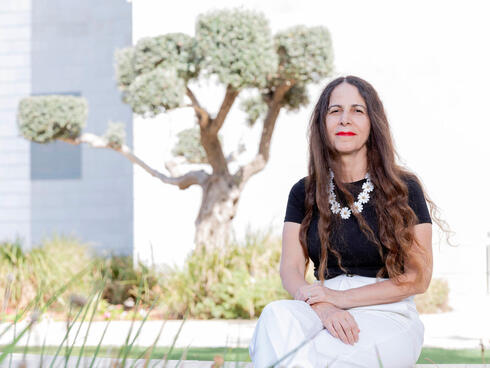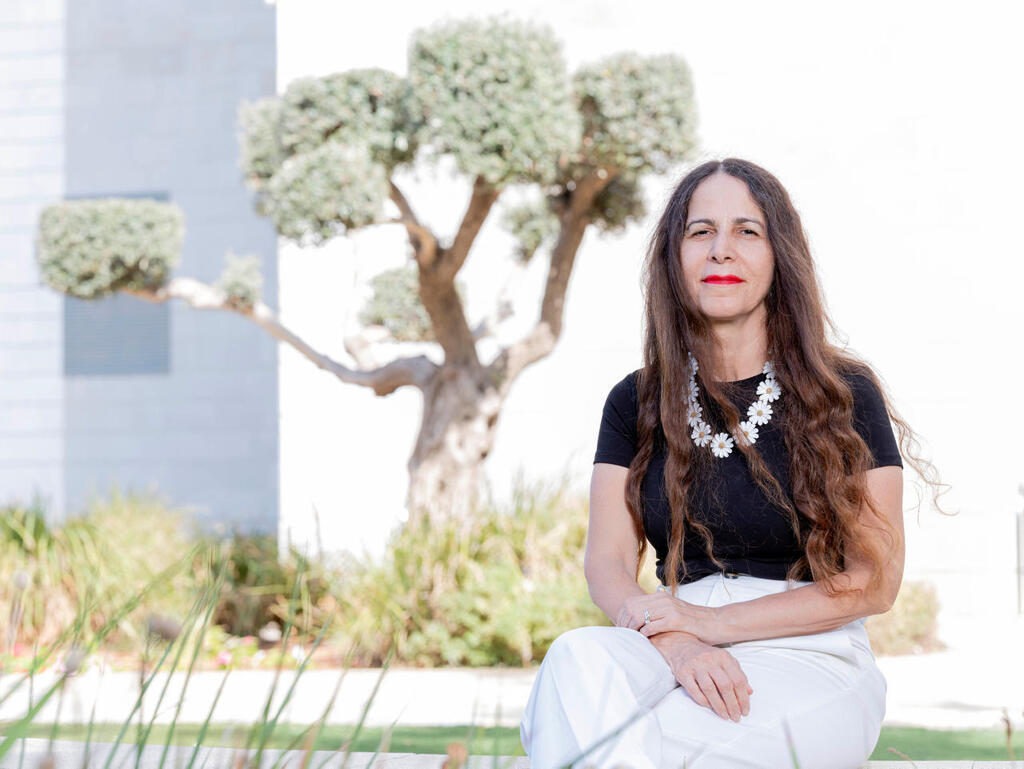
ISRAEL AT WAR
Hamas and hasbara: Israel’s uphill battle in the public diplomacy war
"We thought that if we told the world what was happening, people would understand our side,” says Europe expert Dr. Esther Lopatin. “We failed since not everyone is interested in the truth or the facts." Despite this, she says support for Israel globally and particularly in Europe is actually increasing
On the morning of October 7 hundreds of murderous terrorists from the terrorist organization Hamas broke through the Israeli border from the Gaza Strip and carried out a heinous massacre of innocent Israeli civilians inside Israeli territory. In the brutal massacres, at least 1,400 Israelis were murdered - babies, children, women and the elderly - adopting tactics reminiscent of ISIS.
Thousands more were injured and over 200 women, children, babies, seniors, and soldiers were abducted by Hamas to the Gaza Strip, with the intent of using them as bargaining chips against Israel. In response, the IDF has been attacking the terrorist infrastructure of the jihadist Hamas organization in Gaza for three weeks in an attempt to collapse its hold on the Palestinian population in Gaza.
Calcalist spoke with Dr. Esther Lopatin, an expert on Europe from Tel Aviv University who has been following the trends in Europe for many years on the European response to Israel's war against Hamas.
We are now seeing large and violent demonstrations against Israel in Europe and in the U.S. Is public opinion there against us?
"When you see the angry demonstrations of pro-Palestinians and supporters of terrorism of all kinds around the world, including those who call 'gas to the Jews' and 'death to the Jews', for a moment it seems that most people in the world are against us. In practice, this is not the case. Recently, two important polls were published that showed that support for Israel is only increasing. Thus, for example, a survey published about two weeks ago in the USA showed that 48% of Americans support Israel and only 10% support the Palestinians. In a poll published in Britain, 21% identify with Israel and 17% with the Palestinians. What's interesting is that 29% support both sides equally, and the rest - 33% - answered that they don't know who to support.”
Perhaps in contrast to previous rounds, we see enormous support from heads of state.
"We see very moving support from the various European leaders who also came to visit Israel, such as Italian Prime Minister Giorgia Meloni, German Chancellor Olaf Scholz, British Prime Minister Rishi Sunak and French President Emmanuel Macron. They also issued a joint statement alongside the United States and condemned the murderous and barbaric attack by Hamas against Israel. Scholz even stated in the Bundestag on October 19 that 'there is no place for anti-Semitism in Germany' and that Germany will not allow demonstrations to take place in which there is a potential threat to the public or an anti-Semitic dimension. A very large part of the demonstrations we see in Berlin, especially in the Neukölln area (where many Muslims live), are actually illegal, the problem is that the police do not always succeed in dispersing them.”
There is a very large population in these countries that immigrated from countries that are less inclined to be on Israel's side. Shouldn't politicians be careful with such statements because they lose potential voters?
"We know that the Muslim minority in Europe tends to vote for left-wing parties. It should be remembered that the right-wing and far-right parties are much more critical than the left-wing parties towards Muslim immigration to Europe and they often express more support towards Israel. Scholz does indeed represent the Socialist Party - a center-left party, similar to Macron - but he still sees himself as committed to the State of Israel, and in his view, Germany must protect its Jewish community. It is important for Germans to show the world that there is a flourishing and prosperous Jewish community in Germany.”
We also saw a strong statement by the European Parliament, which voted about two weeks ago in favor of a motion that condemns the murderous attack by Hamas and recognizes Israel's right to defend itself. The members of parliament called for the release of all the abductees held in the Gaza Strip. The proposal passed with a majority of 500 supporters against 21 opponents.
"The support for Israel is not accidental. Europe has been changing its face in recent years. The extreme right is getting stronger. Not because the Europeans are racists and xenophobes, although there are those too. This is because of the fear for the identity of the nation-state. Surveys conducted in recent years have shown that approximately 69% of far-right voters in Germany claim that they vote for 'Alternative Germany' because of Germany's liberal immigration policy. Many feel that the immigrants' integration process has failed. Angela Merkel, the former Chancellor of Germany, also claimed at the time that 'multiculturalism has not succeeded'. In the last 20 years, Europe has experienced quite a few terrorist attacks. This creates a feeling that the immigrants of Muslim origin and the refugees are not only an economic burden but a danger to personal security.”
Isn't this a trend whose roots are racism? There are those who will say that in the future those people will also not be satisfied with the presence of the Jews.
"We saw in the last elections in France that almost half of the public - 41.5% - supported the far-right candidate Marine Le Pen. In Sweden, too, we see that the third largest party is the extreme right party, which received 17% of the votes in the elections. Many sections of the European public are disappointed with Europe's immigration policy and demand that the local leadership adopt a stricter policy and not allow the passage of millions of refugees and immigrants (especially from Muslim countries) to Europe.
"In the past, the far-right parties tended to be anti-Semitic. Le Pen's father is an avowed anti-Semite. However, in the last two decades, the extreme right has undergone a transformation. For it, the greatest enemy of Europe is not the Jewish people but Islam and especially radical Islam. That is why the leaders of the right and the extreme right decided to side with Israel and support it. They see Islamic immigration to Europe as endangering German, French, Italian, and other nation-states and cultures. At the same time, they see the presence of Jews in Europe as an asset that is important to preserve, and therefore they constantly emphasize Europe's moral obligation to protect the Jews living in its vicinity. There is also a change in the Jewish vote in Europe. Jews tended to vote almost automatically for left-wing parties because they were less anti-Semitic, and in recent years we see quite a few voting for right-wing and even extreme right-wing parties (especially in Austria, France, and the Netherlands) since most manifestations of anti-Semitism in Europe come from the radical left and Islamist circles.”
So when the Europeans now show strong support for Israel, they look less at us and think more about what could happen at home?
"Definitely. The Europeans have shown an understanding of terrorism over the years, but from the moment the attacks arrived on their soil, they started asking themselves questions. Why are there Sharia movements in France, Belgium, and the UK and why do these movements strive to turn our countries into countries of Islamic religious laws? A few years ago in a survey conducted in France, it was evident that 33% of Muslims support the transformation of France into a Sharia state, in Britain it seems that 25% of British Muslims support a Muslim religious state. Therefore, when the mayor of New York says, 'Your struggle in Israel is our struggle,' many Europeans can sympathize with that."
In Europe they are more sensitive to freedom of speech than in Israel.
"Europeans are very sensitive to freedom of speech and individual rights. There is strict legislation against Holocaust deniers, and many sections of the public expect there to be similar legislation against radical Islamic activists and supporters of terrorism.”
We hear quite a few complaints about Israeli hasbara (public diplomacy). Do you also think that the trends in Europe have nothing to do with what Israel says?
"The problem with Israeli hasbara is that we thought that if we told the world what was happening, people would understand us and show understanding for our side, or understand that it is not black and white, but that it is much more complex. Unfortunately, we failed because people are not always interested in hearing your side, even if you show them the truth and provide them with facts. When one of the demonstrators at a pro-Palestinian demonstration in New York was asked about two weeks ago what she thought about the fact that women were raped and babies were beheaded, she claimed that it was all fake news. That’s completely delusional, but it's the reality. Therefore, as horrible as it is, Israel should have left the bodies in the field and on the same day called journalists from around the world to document this barbaric and despicable murder. This is what may shock people - the brutality and cruelty.
"Not only did the military concept fail, but also that of the hasbara. What is most effective in the current situation is to hit terrorist supporters in their pockets and their employment opportunities. We see in the last two weeks that this is the only thing that helps. Bill Ackman, a Jewish billionaire and manager of a New York hedge fund, who donated millions to Harvard University, recently announced that he will not donate to Harvard again. At the same time, he called on Harvard to publish the names of students who signed a letter accusing Israel of the attack. He stated that the publication of the names would allow him and his friends, CEOs of many large companies, to avoid hiring them in the future. The biggest donors to the leading universities are Jews, so when they stop donating it will have a tremendous impact on the universities and the students.”















